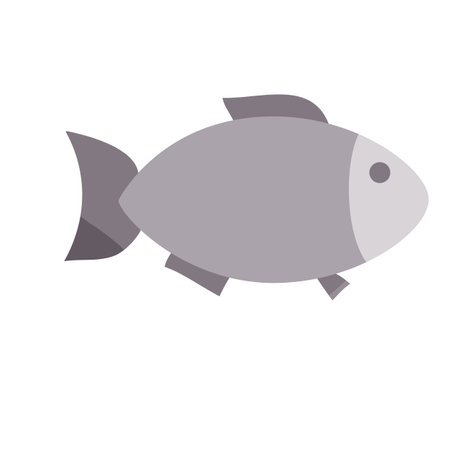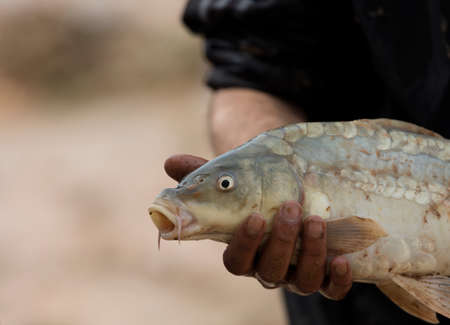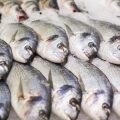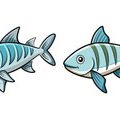Introduction to Catch and Release Fishing
Catch and release fishing has become an essential practice throughout the United Kingdom, reflecting a growing awareness of the need for sustainable angling. This approach allows anglers to enjoy their sport while contributing to the conservation of fish populations and aquatic ecosystems. In England, Scotland, and Wales, catch and release is not just an ethical choice—it is increasingly underpinned by legal frameworks designed to protect native species, support biodiversity, and ensure the long-term viability of recreational fisheries.
The primary objective of catch and release is to minimise harm to fish stocks, particularly where vulnerable or protected species are concerned. Across the UK, specific rules dictate when and how anglers must release certain species, especially during closed seasons or in designated conservation areas. The legal responsibilities vary between England, Scotland, and Wales due to differing environmental policies and local priorities.
Below is an overview of the importance of catch and release for conservation, along with a summary of key legal obligations for anglers in each nation:
| Country | Conservation Importance | Legal Responsibilities |
|---|---|---|
| England | Protects threatened species like salmon and coarse fish; aids recovery in overfished waters. | Mandatory release for some species during closed seasons; strict handling guidelines enforced by the Environment Agency. |
| Scotland | Preserves native salmonid populations; critical in rivers with declining returns. | Certain rivers require 100% catch and release for salmon; regulations set by local District Salmon Fishery Boards. |
| Wales | Sustains wild trout and migratory salmon stocks; maintains ecosystem health. | Compulsory release in specified waters or during particular times; Natural Resources Wales provides detailed guidance. |
This article will explore these legal requirements in depth, offering anglers clear guidance on their duties and best practices for responsible catch and release fishing across England, Scotland, and Wales.
2. Legal Framework in England
England maintains a comprehensive legal framework to ensure sustainable angling practices, particularly when it comes to catch and release fishing. The principal legislation is the Salmon and Freshwater Fisheries Act 1975, alongside various byelaws administered by the Environment Agency (EA). Anglers must adhere to specific requirements to remain compliant with these laws, designed to protect fish stocks and aquatic biodiversity.
Licensing Requirements
Anyone over the age of 13 wishing to fish for salmon, trout, freshwater fish or eels in England’s rivers, streams, canals, or stillwaters must possess a valid Environment Agency rod fishing licence. Failing to produce a valid licence can result in fines up to £2,500. Licences are available for different durations and categories:
| Licence Type | Duration | Applicable Species |
|---|---|---|
| Trout & Coarse Fish Licence | 1 day / 8 days / 12 months | All non-salmonids (e.g., carp, pike) |
| Salmon & Sea Trout Licence | 1 day / 8 days / 12 months | Salmon, sea trout, plus all coarse species |
Protected Species & Closed Seasons
Certain species are strictly protected under UK law. For example, the European eel and sturgeon require special permissions. Additionally, there are mandatory closed seasons for many fish species to allow for spawning:
- Coarse Fish: Closed season on rivers from 15 March to 15 June inclusive.
- Salmon & Trout: Regional variations exist—anglers must consult local EA byelaws for specific dates.
- Protected Species: It is illegal to target or retain species such as shad or lamprey without explicit authority.
Relevant Authorities and Enforcement
The Environment Agency is responsible for licensing, enforcement of byelaws, and overall fisheries management in England. They conduct regular patrols and have the power to issue fines or prosecute offenders. In some waters managed by angling clubs or private owners, additional rules may apply—always check with the relevant authority before fishing.
Summary Table: Key Legal Considerations in England
| Requirement | Description | Authority/Reference |
|---|---|---|
| Rod Licence | Mandatory for all anglers over 13 years old; varies by species targeted. | Environment Agency (EA) |
| Byelaws & Local Rules | Covers bag limits, size limits, allowable methods (e.g., barbless hooks), and seasonal closures. | EA/Local Clubs/Private Waters |
| Protected Species Provisions | Bans on targeting certain species; requires reporting accidental captures. | Countryside and Rights of Way Act 2000 / Wildlife & Countryside Act 1981 |
| CLOSED SEASON Compliance | No fishing allowed during specified breeding periods for coarse fish and salmonids. | EA Byelaws (Region Specific) |
This robust legal structure ensures that catch and release fishing in England is conducted responsibly, balancing recreational opportunities with the imperative of conservation.

3. Legal Framework in Scotland
Scotland maintains a distinct legal landscape for catch and release fishing, reflecting both ecological priorities and cultural values. While there are similarities to England’s approach, Scottish regulations feature unique elements that anglers must be aware of before casting their lines.
Key Regulatory Differences
Unlike in England, where national guidelines often provide broad recommendations, Scotland enforces specific statutory obligations for salmon and sea trout fisheries. The Salmon Conservation (Scotland) Regulations designate the conservation status of individual rivers annually, categorising them into three grades based on stock assessments. These grades directly influence the legal requirements for catch and release:
| River Grade | Catch & Release Requirement |
|---|---|
| Category 1 | No mandatory catch and release, but encouraged early season |
| Category 2 | Catch and release recommended during vulnerable periods |
| Category 3 | 100% mandatory catch and release for salmon at all times |
Mandatory Catch and Release Zones
Many Scottish rivers—especially those assessed as Category 3—require that all caught salmon be returned unharmed to the water throughout the fishing season. This mandate is legally binding and enforced by local bailiffs and river authorities, with significant penalties for non-compliance.
The Role of River Trusts
River trusts play a pivotal role in managing Scotland’s fisheries. These organisations monitor fish populations, oversee habitat restoration projects, and collaborate with government bodies to implement sustainable angling practices. They also provide up-to-date information on local regulations, ensuring anglers remain compliant with evolving legal frameworks.
Cultural Attitudes and Compliance
The tradition of responsible angling is deeply embedded in Scottish culture, further reinforced by law. Anglers are expected not only to follow statutory rules but also to adopt best practices for fish welfare—such as using barbless hooks and minimising handling time.
In summary, Scotland’s approach to catch and release is marked by region-specific legislation, stringent enforcement in sensitive areas, and active involvement from river trusts—making it essential for visiting anglers to familiarise themselves with both national laws and local bylaws before fishing.
4. Legal Framework in Wales
When it comes to catch and release fishing in Wales, the legal framework is distinct from that of England and Scotland, shaped by a strong commitment to conservation and local ecological considerations. The primary authority overseeing freshwater fisheries in Wales is Natural Resources Wales (NRW), which issues comprehensive guidance for both recreational anglers and fishery managers.
Insight into Welsh Catch and Release Regulations
In Wales, catch and release is not only encouraged but sometimes mandated, particularly during critical periods or for vulnerable fish species such as Atlantic salmon and sea trout. NRW regularly reviews the state of fish stocks and can introduce compulsory catch and release regulations when necessary to protect populations at risk.
Key Legal Requirements
| Requirement | Description |
|---|---|
| Closed Seasons | Certain waters have mandatory closed seasons for salmon, trout, and coarse fish. During these times, all angling may be prohibited or subject to strict catch and release only rules. |
| Tackle Restrictions | Regulations often specify use of barbless hooks, landing nets with knotless mesh, and ban on certain baits to minimise harm to fish during handling and release. |
| Compulsory Release Species | In specified rivers, all salmon caught must be released unharmed throughout the season, reflecting ongoing concerns about declining stocks. |
Natural Resources Wales’ Guidance
NRW publishes detailed best practice guidelines for catch and release to ensure high survival rates post-release. Anglers are advised to:
- Minimise handling time out of water
- Use wet hands or gloves when touching fish
- Quickly return fish to the water using appropriate reviving techniques
Unique Conservation Measures
Apart from statutory regulations, many Welsh rivers have voluntary agreements between angling clubs and NRW to exceed minimum legal standards—such as higher rates of voluntary catch and release or habitat restoration projects. These collaborative efforts help safeguard the long-term sustainability of iconic Welsh fisheries.
5. Best Practices and Compliance
Ensuring compliance with legal requirements for catch and release fishing across England, Scotland, and Wales involves more than just following the rules; it also means adopting best practices to promote fish welfare and protect local ecosystems. Below is an overview of key steps anglers should take to align with both the law and ethical standards.
Essential Equipment for Compliance
| Equipment | Purpose | Legal Requirement |
|---|---|---|
| Barbless Hooks | Minimises injury to fish during release | Recommended or required in many areas |
| Landing Net (Knotless) | Reduces scale and slime damage | Mandatory on certain rivers and lakes |
| Measuring Device | Ensures fish meet minimum/maximum size limits | Essential for legal compliance |
| Damp Hands or Gloves | Prevents removal of protective slime from fish | Best practice; sometimes required by bylaws |
| Unhooking Mat/Cradle | Protects fish when unhooking on bankside | Required for coarse fishing in many fisheries |
Humane Handling Procedures
- Minimise Air Exposure: Keep fish in water as much as possible; limit air exposure to under 10 seconds where feasible.
- Avoid Squeezing: Handle fish gently, supporting their body without compressing vital organs.
- Use Proper Unhooking Tools: Employ disgorgers or forceps to remove hooks quickly and safely.
- Revive Before Release: Hold fish upright in water until they swim away strongly, especially after a long fight.
- Avoid Hot Weather Fishing: In high temperatures, consider refraining from catch and release to reduce stress on fish populations.
Reporting Obligations Across the UK
| Nation/Region | Catches Requiring Reporting | How to Report | Punitive Measures for Non-Compliance |
|---|---|---|---|
| England (Environment Agency) | Migratory salmonids, protected species, tagged fish, record specimens | Catches must be logged online or via provided forms; some fisheries require on-site logbooks | Fines up to £50,000 or prosecution under Salmon & Freshwater Fisheries Act 1975 and related legislation |
| Scotland (Marine Scotland) | Salmon, sea trout, specific conservation species; annual returns often mandatory even for no-catch seasons | Email or post annual catch returns to District Salmon Fishery Boards or Marine Scotland Science department; electronic systems available in some regions | Breach of Conservation Regulations can result in prosecution and penalties determined by Scottish courts |
| Wales (Natural Resources Wales) | Migratory fish (salmon, sea trout), protected species, notable catches as specified by local byelaws or permits | Catches reported via NRW online portal or paper forms; club waters may have additional reporting requirements | Breach of byelaws may result in fixed penalty notices or prosecution under Water Resources Act 1991 and associated byelaws |
The Importance of Staying Informed
Laws and best practices are subject to change based on scientific assessments and conservation needs. Anglers are strongly encouraged to review the latest updates from regulatory bodies such as the Environment Agency, Marine Scotland, and Natural Resources Wales before each trip. By equipping yourself properly, handling fish humanely, and fulfilling all reporting obligations, you ensure both legal compliance and the continued health of UK fisheries.
6. Consequences of Non-Compliance
Adhering to the legal requirements for catch and release fishing is essential across England, Scotland, and Wales. Failing to comply with these regulations can lead to significant consequences for anglers. Authorities in each nation treat breaches seriously, and penalties may be imposed to protect fish stocks and support conservation efforts.
Summary of Possible Penalties
| Type of Offence | Possible Penalty | Relevant Authority |
|---|---|---|
| Fishing without correct licence or permit | Fines up to £2,500 | Environment Agency (England & Wales), Scottish Environment Protection Agency (Scotland) |
| Failing to release protected species correctly | Caution, fine, or criminal prosecution | Local fisheries authorities, Crown Prosecution Service |
| Breach of seasonal restrictions (e.g., close season fishing) | Confiscation of equipment, fines, or prosecution | Environment Agency, Police Scotland, Natural Resources Wales |
| Use of prohibited tackle or methods | Warning, fine, loss of fishing rights | Fishery bailiffs, local enforcement officers |
Legal Guidance and Support
If you find yourself facing allegations related to catch and release offences, it is important to seek appropriate advice. Anglers can:
- Contact a solicitor experienced in environmental or fisheries law for legal representation.
- Refer to national angling organisations such as the Angling Trust (England & Wales) or Fisheries Management Scotland for guidance and support.
- Access publicly available resources from the Environment Agency, Natural Resources Wales, or Scottish Environment Protection Agency regarding your rights and responsibilities.
Key Points to Remember:
- Penalties may vary depending on the severity and nature of the offence.
- Bailiffs and enforcement officers have the authority to issue on-the-spot fines or report serious violations for prosecution.
- Persistent offenders may face more severe consequences, including bans from fishing certain waters.
If In Doubt…
If you are unsure about any aspect of the catch and release regulations in your region, always check with your local fishery office or consult official government guidance before fishing. Compliance not only protects you legally but also plays a vital role in conserving fish populations for future generations.
7. Resources and Further Information
For anglers across England, Scotland, and Wales, accessing reliable and up-to-date information on catch and release fishing regulations is essential to stay compliant with the law and support local conservation efforts. Below is a curated list of governmental and non-governmental resources where you can find legal guidance, updates, and support tailored to each country in the UK.
Governmental Resources
| Organisation | Jurisdiction | Resource Type | Website/Contact |
|---|---|---|---|
| Environment Agency (EA) | England | Licences, byelaws, catch and release rules | Visit EA Website |
| Natural Resources Wales (NRW) | Wales | Fishing permits, legal updates, conservation advice | Visit NRW Website |
| Scottish Government / Fisheries Management Scotland (FMS) | Scotland | Laws, river regulations, conservation codes | Visit FMS Website |
| Migrant Fish Guidance Portal (DEFRA) | UK-wide (Migratory species) | Policy documents, protected species info | Visit DEFRA Portal |
Non-Governmental Organisations & Support Networks
| Organisation | Focus Area | Support Offered | Website/Contact |
|---|---|---|---|
| The Angling Trust | England & Wales | Legal helpline, advocacy, best practice guides for catch and release | Visit Angling Trust Website |
| The Wild Trout Trust | UK-wide (Trout) | Sustainable angling advice, river habitat protection tips, workshops on responsible catch and release techniques | Visit Wild Trout Trust Website |
| The Salmon & Trout Conservation UK (S&TC UK) | UK-wide (Salmonids) | Campaiging for improved fisheries legislation and environmental protection; educational resources for anglers. | Visit S&TC UK Website |
| Tweed Foundation & Local Fishery Boards | Regional/Local (e.g., River Tweed) | Countryside Codes, real-time updates on river-specific rules. | Visit Tweed Foundation Website |
| The Scottish Anglers National Association Conservation Group (SANA CG) | Scotland (general angling) | Liaison with government on legal matters, conservation campaigns. | Visit SANA Website |
Additional Tips for Staying Informed:
- Email Newsletters: Subscribe to updates from relevant agencies or angling clubs to receive the latest changes in laws or guidelines direct to your inbox.
- Local Tackle Shops: Many local suppliers are well-versed in regional regulations and can offer practical advice before you fish.
- Countryside Access Codes: Always consult the UK Right to Roam guidance , as access laws may affect where catch and release is permitted.
If in Doubt—Ask!
If you are ever unsure about specific rules at a given waterway or fishery, contact the local authority or club directly. Responsible angling not only ensures you comply with legal requirements but also helps protect fish stocks and the aquatic environment for future generations.


